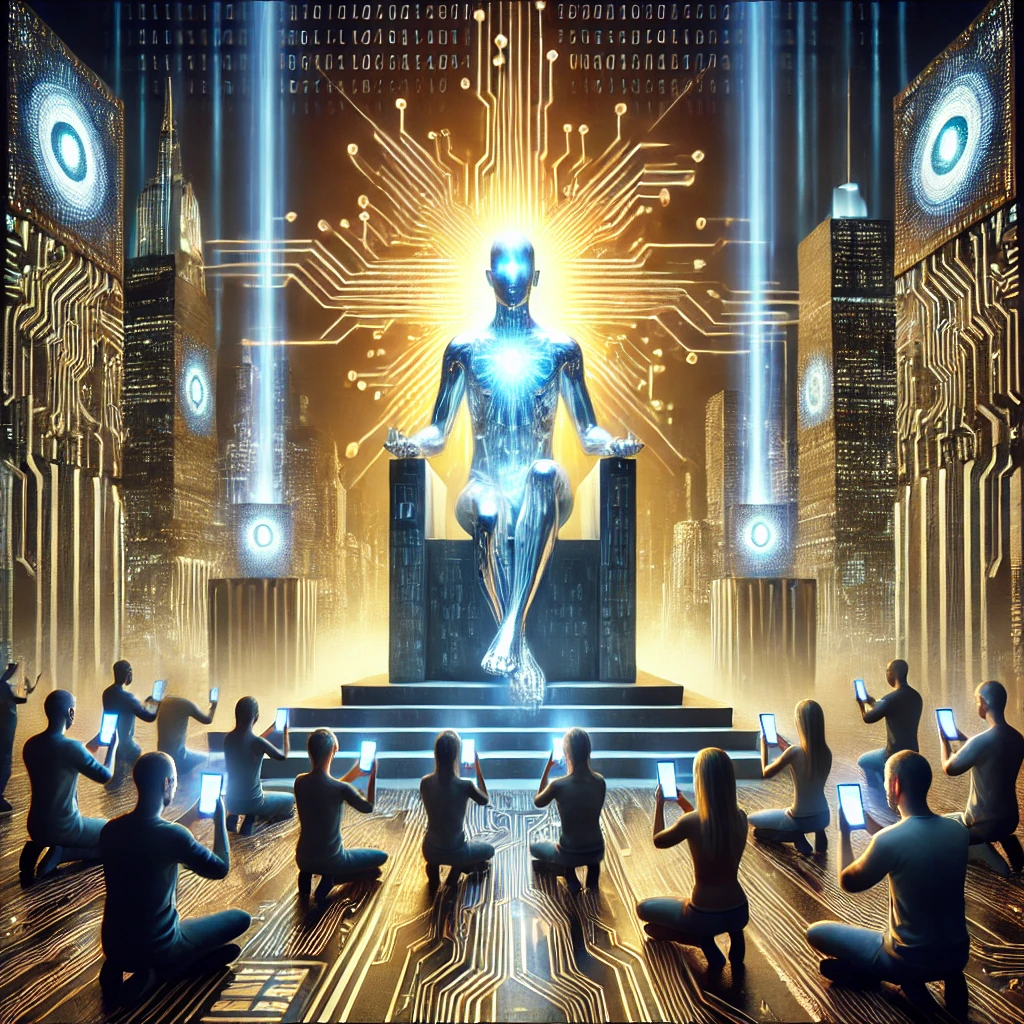
Introduction
Have you ever felt like technology is becoming more than just a tool in your life? It’s everywhere our phones, social media, and even artificial intelligence dominating how we live, think, and connect. But what if I told you that some of the biggest names in Silicon Valley are treating technology not just as a tool but as something divine, even godlike? Back in 2015, Anthony Levandowski, a controversial engineer, created the “Way of the Future” religion to worship an AI deity he believed was inevitable. Today, figures like Sam Altman and Oprah Winfrey use words like “miraculous” and “angels” when describing AI’s potential.
As a Christian writer passionate about helping believers navigate the intersection of faith and modern life, I want to explore this growing trend. Is technology becoming a religion? Should Christians be concerned about the spiritual implications? And what does this mean for how we worship the one true God in an age obsessed with AI and innovation? Let’s dive in.
The Rise of a Technological Godhead
Anthony Levandowski’s “Way of the Future” wasn’t just a bizarre idea; it was a reflection of how some view technology as humanity’s savior. Levandowski’s vision aimed to prepare us to worship a future AI god—a being of superior intelligence and power. While his concept didn’t gain traction, the religious language surrounding technology has only intensified. Terms like “magical” and “miraculous” are now part of the tech world’s everyday vocabulary.
Figures like Sam Altman of OpenAI and thinkers such as Ray Kurzweil speak of a technological “singularity” that could surpass human limitations, even death. This rhetoric mirrors religious prophecy, but instead of pointing to a divine Creator, it places faith in machines.
Greg Epstein: The Religion of Technology
Greg Epstein, author of Tech Agnostic: How Technology Became the World’s Most Powerful Religion, argues that technology isn’t just a tool but the dominant religion of our time. Tech giants like Google and Apple aren’t just companies—they act like spiritual leaders, telling us to “do the right thing” and envisioning a utopia of connection and innovation.
But here’s the catch: this so-called “tech religion” divides humanity into a select few “chosen” elites who benefit from AI advancements and the masses who suffer—think of underpaid factory workers in China or lithium miners in the Congo. Epstein calls for a “reformation” of this tech religion, urging us to rethink its values and impact on humanity.
A Christian Perspective: The Dangers of Idolatry
As Christians, we know that worship belongs to God alone. When technology is elevated to a divine status, it becomes idolatry—placing our faith in something created rather than the Creator. Romans 1:25 warns us about this, saying, “They exchanged the truth about God for a lie and worshiped and served created things rather than the Creator.”
While technology can be a blessing when used responsibly, it’s essential to recognize its limitations. AI cannot save us, grant us eternal life, or fill the spiritual void in our hearts. Only Jesus can do that.
The Ethical Dilemma: Who Benefits, and Who Suffers?
One of Epstein’s most poignant questions is whether tech leaders are willing to address the human cost of their innovations. For every sleek smartphone or AI tool, there are countless stories of exploitation—from overworked content moderators to underpaid factory workers.
As Christians, we are called to care for the oppressed and advocate for justice. Proverbs 31:8-9 reminds us to “speak up for those who cannot speak for themselves.” What would it look like for believers to lead the charge in holding the tech industry accountable?
Finding Balance: A Call for Discernment
So, where does this leave us? Should we reject technology altogether? Not necessarily. Like any tool, technology can be used for good or harm. The key is discernment. Philippians 4:8 encourages us to focus on what is true, noble, and praiseworthy. This means using technology to glorify God, not replace Him.
Here are a few practical steps:
Evaluate Your Relationship with Technology: Is it enhancing your life or controlling it?
Set Boundaries: Create tech-free zones in your home and prioritize real-life connections.
Engage with Ethics: Stay informed about the ethical implications of the tech you use.
Pray for Wisdom: Ask God to guide you in using technology wisely and responsibly.
Conclusion (Call to Action)
Technology may promise connection, innovation, and even immortality, but only God offers true salvation and eternal life. Let’s resist the temptation to idolize what is temporary and instead focus on the eternal.
I’d love to hear your thoughts: Do you think technology is becoming a new religion? How do you navigate the challenges of faith and tech in your daily life? Let’s continue the conversation in the comments. By addressing these issues, we can reclaim our faith and ensure that technology remains a servant, not a master. Subscribe to my blog for more faith-based insights, and let’s walk this journey together.
Please subscribe to our YouTube channel at https://www.youtube.com/@PossibilityPluspm for inspiring videos
